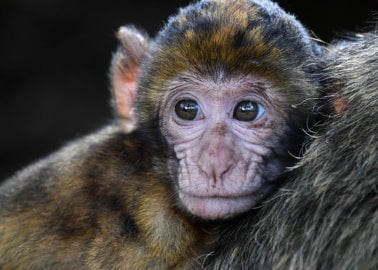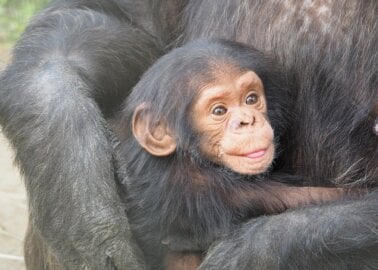4 Reasons Why You Should Never Buy an ‘Exotic’ Animal
In the UK alone in 2018, thousands of “exotic” animals were rescued by the RSPCA after being abandoned or neglected. People who buy animals such as turtles, snakes, lizards, parrots, or monkeys from pet shops or auctions or online often don’t realise how ill suited these animals are to living in our homes.
Read on to find out why we shouldn’t support the exotic-animal trade:

1. Exotic Animals Are Snatched From Their Natural Habitats
Some animals in the exotic-pet trade are bred in captivity, but others are torn away from their natural habitats by poachers. They may be shipped massive distances to be sold halfway around the world, and they’re commonly deprived of food, space to move freely, and adequate shelter during these gruelling journeys. As many as four out of five of them will die in transit or within a year.
Most reptiles sold in the UK are imported from Germany, which hosts Terraristika, Europe’s largest reptile show. Investigations into the fair have found that some animals were kept in plastic tubs so small that they were barely able to move.

2. Like All Living Beings, They Suffer in Captivity
Exotic animals suffer physically and psychologically when held in captivity. Even the largest, most “enriched” tanks can’t replicate their native environments. Hardly anyone has the space and knowledge necessary to cater to these animals’ complex needs. Baby turtles – who learn how to communicate from their mothers and spend most of their time by their mothers’ sides – can suffer from loneliness and other psychological problems when taken away from their families. During a PETA US investigation of a reptile mill, eyewitnesses saw water dragons rubbing their snouts on the sides of their enclosures – a behaviour indicating that the cramped living conditions were causing them extreme stress.

3. Many Animals Escape or Are Cruelly Dumped
Many exotic animals, such as snakes, escape their enclosures and can put the unsuspecting public in danger. There has been incident upon incident in which snakes have got loose and roamed UK streets. An escaped boa constrictor devoured a pigeon on a London street, and the victim could just as easily have been someone’s beloved cat, dog, or small child. In another case, a woman woke up to find a python in her bed. The RSPCA reported rescuing 4,000 exotic animals across England and Wales in 2018 alone – many of whom had been dumped when their owners found that taking care of them involved more work than they’d bargained for.

4. They Can Become Invasive
Escaped exotic “pets” who evade capture and manage to survive outdoors may start to breed, establishing the species in an area to which it’s not native and becoming “invasive”. For example, raccoon dogs, who are native to East Asia, can be found roaming free in Wales. They pose a threat to native wildlife and carry a parasite that could harm human health. In the US state of Florida, escaped exotic animals – from Burmese pythons and green iguanas to vervet, squirrel, and rhesus monkeys – have acclimatised and bred.
What You Can Do
Please, never buy exotic animals from dealers or pet shops, and inform your friends and family about the immense cruelty of the exotic-pet trade.



